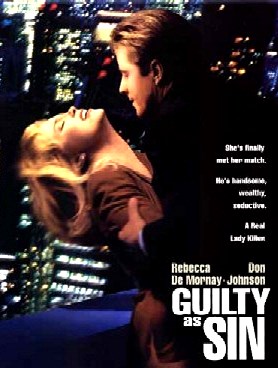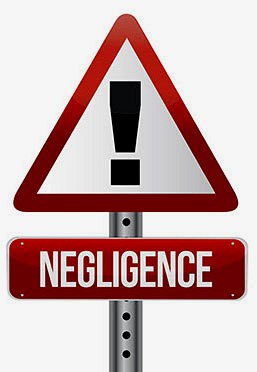A disappointed beneficiary is one who fully expected to inherit, should have inherited, but due to the lawyer’s negligence in failing to prepare and have the will executed by the testator in a “ timely manner”, the testator in the interim dies without having ever signed the will.
The intended beneficiary is VERY “ disappointed” and on occasion comes to see me.
The lawyer clearly does owe a duty of care to the beneficiary under our law, and if the lawyer was negligent in having the will prepared and signed in a “ timely manner”, the lawyer can be held liable to the third party intended beneficiary.
The following quote of law summarizes this interesting area:
Wilhelm v. Hickson [2000] S.J. No. 45
23 As observed by Lord Goff in White v. Jones, the liability of a lawyer to a disappointed beneficiary in respect of a will which has failed to carry out the testator’s intention because of the lawyer’s negligence has been much discussed. Notwithstanding the formidable difficulties in finding liability within the principles which had applied for at least a century to the legal relationship between lawyer and client, the overwhelming weight of authority in common law jurisdictions over the past 20 years or so has been in favour of finding liability one way or another, usually by an extension of the principle in Hedley Byrne & Co. Ltd. v. Heller & Partners Ltd., [1964] A.C. 465. See: White v. Jones; Whittingham v. Crease & Co. (1978), 88 D.L.R. (3d) 353 (B.C.S.C.); Ross v. Caunters, [1979] 3 All E.R. 580 (Ch. Div.); Watts v. Public Trustee for Western Australia, [1980] W.A.R. 97 (S.C.W.A.); Sutherland v. Public Trustee, [1980] 2 N.Z.L.R. 536 (S.C.); Gartside v. Sheffield, Young & Ellis, [1983] N.Z.L.R. 37 (C.A.); Hodgson v. Evans & Rice, [1983] A.J. No. 576 (Alta. Q.B.); Finlay v. Rowlands, Anderson & Hine, [1987] Tas.R. 60; Hawkins v. Clayton (1988), 164 C.L.R 539; Makhan v. McCawley, [1998] O.J. No. 1206, 158 D.L.R. (4th) 164, 58 O.T.C. 283, 22 E.T.R. (2d) 88; Smolinski v. Mitchell, [1995] B.C.J. No. 1789; [1995] 10 W.W.R. 68, 10 B.C.L.R. (3d) 366, 8 E.T.R. (2d) 247 (B.C.S.C.). The only authority cited to the contrary, a very detailed and carefully reasoned judgment, is that of the Supreme Court of Victoria in Seale v. Perry, [1982] V.R. 193. The dissenting speech of Lord Mustill in White v. Jones is also a trenchant statement of the case against liability.
24 The principle in Hedley Byrne has been made a part of the law of Canada by Haig v. Bamford, [1977] 1 S.C.R. 466. In the latter case, an accountant was found to be liable to an investor for negligence in the preparation of a financial statement where the investor had relied on the financial statement in making his decision to invest, nothwithstanding that the accountant and investor were strangers to each other. The accountants, in preparing the statement, were aware of the use to which the statement was to be put and assumed responsibility to that class of people to whom they knew it would be supplied, and owed a duty to them to take reasonable care. The investor had relied on the financial statement and had thereby suffered financial loss.
25 However, it is difficult to apply the Hedley Byrne principle to the relationship of lawyer and disappointed beneficiary. The work is clearly done for the testator, not the beneficiary. Perhaps more importantly, it cannot be said that the disappointed beneficiary has in any way relied on the exercise by the lawyer of proper care and skill.
26 There are many other problems in extending the liability of a lawyer to disappointed beneficiaries. They were analyzed and summarized by Lord Goff in White v. Jones the following way.
27 The first problem is that the relationship between a lawyer and client is usually contractual, and there can be no liability to a third party because of the doctrine of privity of contract. Furthermore, the scope of the lawyer’s duties to his client is fixed by the terms of the retainer, and at least in theory, the lawyer may protect himself by including terms in the retainer agreement. In the case of liability to a third party, this protection would be lost because there is no contract with the third party.
28 The second difficulty is that, while a lawyer may be concurrently liable to his client in contract and in tort, there is no duty of care owed by the lawyer to the disappointed beneficiary in tort (aside from assumption of responsibility under the principle in Hedley Byrne.) This is reinforced by the fact that the claim is one for purely financial loss, and no action lies in tort for such a loss. (This is not so in Canada: Rivtow Marine Ltd. v. Washington Iron Works, [1974] S.C.R. 1189, and University of Regina v. Pettick (1991), 77 D.L.R.(4th) 615.) Furthermore, the claim is one for a mere loss of expectation, as opposed to an existing right, and, again, no action lies in tort for such a loss. These claims fall in the zone of contractual liability rather than tortious liability.
29 A third argument against recognition of liability in tort is the difficulty of placing limits on cases in which liability would be allowed. Logically, liability would have to be imposed in cases of inter vivos gifts where the defect was for some reason irreparable. Logically, liability could not be limited to specific named beneficiaries and liability would have to be extended to indeterminate classes of persons who have been affected.
30 Finally, it would be illogical to impose a duty on the lawyer to the disappointed beneficiary when the testator himself owed no such duty. And recovery by a disappointed beneficiary from the lawyer would have the effect of increasing the size of the testator’s estate because it would not be possible to recover any part of the estate which had lawfully devolved on others even though it was not the testator’s intention.
31 Against these arguments, Lord Goff juxtaposed what he termed to be the reasons of justice which prompt judges and academic writers to conclude that a duty should be owed by the testator’s lawyer to a disappointed beneficiary.
32 Firstly, if no such duty is imposed, the only persons with a valid claim, the testator and his estate, have suffered no loss, and the only person who has suffered a loss, the disappointed beneficiary, has no claim. This indicates a lacuna in the law which needs to be filled.
33 Secondly, there exists a need to recognize the importance of the rights of persons to leave their property to whom they please and a need to rectify mistakes which frustrate those rights.
34 Thirdly, there is no injustice in making a lawyer whose negligence has defeated his client’s testamentary intentions liable to pay damages, even if the damages are payable direct to the disappointed beneficiary rather than to his client’s estate for the purpose of distribution to the disappointed beneficiary.
35 Finally, the public relies on lawyers to prepare effective wills. To deny an effective remedy amounts to a refusal to acknowledge a lawyer’s professional role in the community.
36 After balancing all of these factors, Lord Goff concluded as follows at p. 710:
In my opinion, therefore, your Lordships’ House should in cases such as these extend to the intended beneficiary a remedy under the Hedley Byrne principle by holding that the assumption of responsibility by the solicitor towards his client should be held in law to extend to the intended beneficiary who (as the solicitor can reasonably foresee) may, as a result of the solicitor’s negligence, be deprived of his intended legacy in circumstances in which neither the testator nor his estate will have a remedy against the solicitor. Such liability will not of course arise in cases in which the defect in the will comes to light before the death of the testator, and the testator either leaves the will as it is or otherwise continues to exclude the previously intended beneficiary from the relevant benefit.
37 He went on to note that his solution involved no unacceptable circumvention of the law of contract, that no problem arose by reason of the loss being purely economic, and that the assumption of responsibility would be subject to any term of the contract between the lawyer and the testator which might exclude or limit liability. Although the damages were for loss of expectation, he saw no reason to make a distinction between liability for contractual negligence where such damages were available and negligence arising under the Hedley Byrne principle.
38 As to the “spectre of solicitors being liable to an indeterminate class”, he pointed out that the ordinary case is one in which the intended beneficiaries are a small number of identified people. More difficult cases should be left until they are before the court.
39 Lord Browne-Wilkinson, in his concurring opinion, said at p. 717-18:
. . . [T]he law will develop novel categories of negligence incrementally and by analogy with established categories’. In my judgment, this is a case where such development should take place since there is a close analogy with existing categories of special relationship giving rise to a duty of care to prevent economic loss.
The solicitor who accepts instructions to draw a will knows that the future economic welfare of the intended beneficiary is dependent upon his careful execution of the task. It is true that the intended beneficiary (being ignorant of the instructions) may not rely on the particular solicitor’s actions. But, as I have sought to demonstrate, in the case of a duty of care flowing from a fiduciary liability is not dependent upon actual reliance by the plaintiff on the defendant’s actions but on the fact that, as the fiduciary is well aware, the plaintiff’s economic well-being is dependent upon the proper discharge by the fiduciary of his duty. Second, the solicitor by accepting the instructions has entered upon, and therefore assumed responsibility for, the task of procuring the execution of a skilfully drawn will knowing that the beneficiary is wholly dependent upon his carefully carrying out his function. That assumption of responsibility for the task is a feature of both the two categories of special relationship so far identified in the authorities. It is not to the point that the solicitor only entered on the task, pursuant to a contract with the third party (ie the testator). There are therefore present many of the features which in the other categories of special relationship have been treated as sufficient to create a special relationship to which the law attaches a duty of care. In my judgment the analogy is close.
40 The trial judge adopted the reasoning of the majority in White v. Jones. We agree that he was correct in so doing. There are two reasons for this.
41 Firstly, we agree with the reasoning of Lord Goff and Lord Browne-Wilkinson. The law as it existed prior to the series of judgments referred herein contained an anomaly when it left a lawyer free of liability for professional negligence, and a disappointed beneficiary without a remedy for a loss which occurred as a result of that negligence, in circumstances such as existed in this case. To use Lord Goff’s words, at p. 711:
Let me emphasise that I can see no injustice in imposing liability upon a negligent solicitor in a case such as the present where, in the absence of a remedy in this form, neither the testator’s estate nor the disappointed beneficiary will have a claim for the loss caused by his negligence. This is the injustice which, in my opinion, the judges of this country should address by recognising that cases such as these call for an appropriate remedy, and that the common law is not so sterile as to be incapable of supplying that remedy when it is required.
42 Secondly, as noted previously, the now numerous precedents in England, Australia, New Zealand and Canada overwhelmingly favour the same result. Academics and text-book writers generally favour it. The judgment in Seale v. Perry, decided in 1982, is the sole exception and it has not been followed elsewhere. The earliest precedents are almost 20 years old and do not seem to have created the problems predicted. As noted by Lord Goff, the law in Germany, France and the United States seems to be developing in the same way. All of this leads us to conclude that the principle stated in White v. Jones may be said to be so well established in most common law jurisdictions that it should be recognized as established in Saskatchewan as well.








